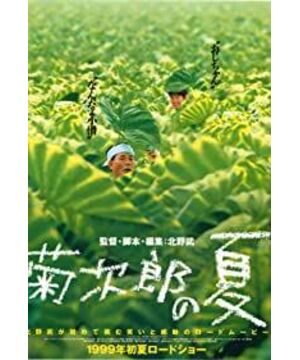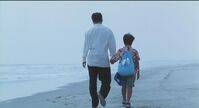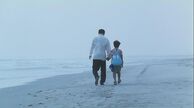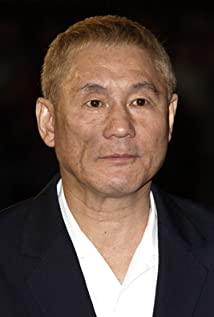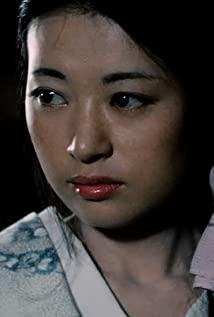The film's theme and narrative are not complicated, its appeal comes from an implicit, soft, non-verbal emotion: it's a mix of emotions, from crying to the absurd and then laughing, Tears suddenly fell while laughing, a sudden tremor in the heart during the numbness of the day - just like a contrasting color on the background of a gouache painting, the contradiction is harmonious, abrupt and real, thus touching the viewer's heart that always exists but is indescribable. Emotions.
The young boy Masao is passive and taciturn, and he does not forget to do his summer homework during the trip; the old boy Kijiro is cynical and does all kinds of evil. Throughout the history of comedy films, similar "contradictory travel" has long been a genre, but what is special about this pair in the film is that the two protagonists do not set off each other, but become one: they also do not. Parents, bullied and terrified all day long; they have the same pure kindness and the same pure smile; more importantly, they did not "know each other" on the journey, but became a whole along the way: at first Zheng Nan The mother-seeking later became Kijiro's mother visiting, Masao's swimming became Kijiro's learning to swim, Masamune's game became Kijiro's game - "Masama's Summer" and "Kiujiro's Summer" are like two of the same photo. The negatives of different colors overlapped under the order of "Kiujiro, fuck it, get out".
One of Kitano's most captivating aspects is the childlike perspective conveyed by the film's shots, which enriches the narrative. The reflection in the wheel, the compound eyes of a dragonfly, and the bizarre dreams, these seemingly absurd scenes are precisely the ones that lend readers a pair of innocent eyes. Is the common world of adults really the only face of all these? The eye-catching still shots that are almost photographic suggest another possibility from the other extreme: the seemingly peaceful picture can actually make the viewer's heart surging. More metaphysically, perhaps we can further ask: Is there a relationship between the stagnation seen on the surface and the turbulence in the context? Is it really flowing like water between this moment and that moment?
From another point of view, although the use of static shots is not new today, the same technology also needs to emphasize the ability of the director to use (for example, it is slightly contrived in Nie Yinniang), and this kind of shot is used in Kitano Wu's summer mood is just right. For children, summer is always hot and endless: the sun is always bright, the air is always stagnant, the waves are always beating on the beach, the sound of cicadas on the trees blurs the gap between the sun and the sun, and even the summer homework seems to be done forever Until the last page - just like the pause button on the way of growth, only in the frozen summer, we don't have to rush to grow up. Mixed with the bitterness of disappointment and alien smiles, this lighthearted mood spreads through the film's still shots and light tones.
View more about Kikujiro reviews


